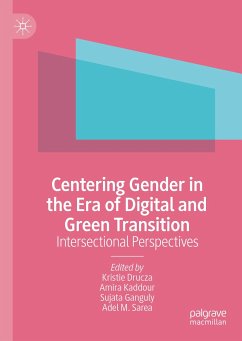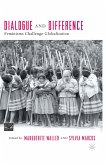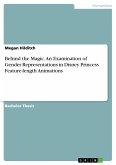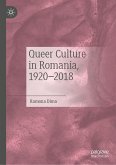Centering Gender in the Era of Digital and Green Transition (eBook, PDF)
Intersectional Perspectives
139,09 €
inkl. MwSt.
Sofort per Download lieferbar

0 °P sammeln
Centering Gender in the Era of Digital and Green Transition (eBook, PDF)
Intersectional Perspectives
- Format: PDF
- Merkliste
- Auf die Merkliste
- Bewerten Bewerten
- Teilen
- Produkt teilen
- Produkterinnerung
- Produkterinnerung

Bitte loggen Sie sich zunächst in Ihr Kundenkonto ein oder registrieren Sie sich bei
bücher.de, um das eBook-Abo tolino select nutzen zu können.
Hier können Sie sich einloggen
Hier können Sie sich einloggen
Sie sind bereits eingeloggt. Klicken Sie auf 2. tolino select Abo, um fortzufahren.

Bitte loggen Sie sich zunächst in Ihr Kundenkonto ein oder registrieren Sie sich bei bücher.de, um das eBook-Abo tolino select nutzen zu können.
This edited volume examines the importance of centering gender in research and policymaking focused on climate change, environmental sustainability, and digital technology. Chapters unpack how the transition to a green and digital future affects various fields and industry sectors including STEM, agriculture, and energy, as well as why gender-transformative approaches—particularly the production and analysis of gender-inclusive disaggregated data—should be included in those transitions. The editors and authors also look at the positive impact of these considerations on economic growth and…mehr
- Geräte: PC
- ohne Kopierschutz
- eBook Hilfe
- Größe: 4.57MB
- Upload möglich
Andere Kunden interessierten sich auch für
![Feminist New Testament Studies (eBook, PDF) Feminist New Testament Studies (eBook, PDF)]() K. WickerFeminist New Testament Studies (eBook, PDF)53,49 €
K. WickerFeminist New Testament Studies (eBook, PDF)53,49 €![Dialogue and Difference (eBook, PDF) Dialogue and Difference (eBook, PDF)]() M. WallerDialogue and Difference (eBook, PDF)58,84 €
M. WallerDialogue and Difference (eBook, PDF)58,84 €![Behind the Magic. An Examination of Gender Representations in Disney Princess Feature-length Animations (eBook, PDF) Behind the Magic. An Examination of Gender Representations in Disney Princess Feature-length Animations (eBook, PDF)]() Megan HilditchBehind the Magic. An Examination of Gender Representations in Disney Princess Feature-length Animations (eBook, PDF)18,99 €
Megan HilditchBehind the Magic. An Examination of Gender Representations in Disney Princess Feature-length Animations (eBook, PDF)18,99 €![Engendering Human Rights (eBook, PDF) Engendering Human Rights (eBook, PDF)]() O. NnaemekaEngendering Human Rights (eBook, PDF)53,49 €
O. NnaemekaEngendering Human Rights (eBook, PDF)53,49 €![The Formation of 20th-Century Queer Autobiography (eBook, PDF) The Formation of 20th-Century Queer Autobiography (eBook, PDF)]() G. JohnstonThe Formation of 20th-Century Queer Autobiography (eBook, PDF)73,95 €
G. JohnstonThe Formation of 20th-Century Queer Autobiography (eBook, PDF)73,95 €![Queer Culture in Romania, 1920–2018 (eBook, PDF) Queer Culture in Romania, 1920–2018 (eBook, PDF)]() Ramona DimaQueer Culture in Romania, 1920–2018 (eBook, PDF)128,39 €
Ramona DimaQueer Culture in Romania, 1920–2018 (eBook, PDF)128,39 €![Geschlechterkonzeptionen im extrem rechten Verschwörungsdenken (eBook, PDF) Geschlechterkonzeptionen im extrem rechten Verschwörungsdenken (eBook, PDF)]() Laila RiedmillerGeschlechterkonzeptionen im extrem rechten Verschwörungsdenken (eBook, PDF)42,99 €
Laila RiedmillerGeschlechterkonzeptionen im extrem rechten Verschwörungsdenken (eBook, PDF)42,99 €-
-
-
This edited volume examines the importance of centering gender in research and policymaking focused on climate change, environmental sustainability, and digital technology. Chapters unpack how the transition to a green and digital future affects various fields and industry sectors including STEM, agriculture, and energy, as well as why gender-transformative approaches—particularly the production and analysis of gender-inclusive disaggregated data—should be included in those transitions. The editors and authors also look at the positive impact of these considerations on economic growth and poverty eradication. Finally, this book presents an ideal/utopian view of what a gender-equal and inclusive world that has transitioned to green industries and embraced digital technologies might look like.
This book will be of interest to scholars, researchers, students and policymakers across the Social Sciences including Sociology, Anthropology, Gender Studies, Science & Technology Studies, and Economics.
This book will be of interest to scholars, researchers, students and policymakers across the Social Sciences including Sociology, Anthropology, Gender Studies, Science & Technology Studies, and Economics.
Produktdetails
- Produktdetails
- Verlag: Springer International Publishing
- Erscheinungstermin: 19. September 2023
- Englisch
- ISBN-13: 9783031382116
- Artikelnr.: 69012178
- Verlag: Springer International Publishing
- Erscheinungstermin: 19. September 2023
- Englisch
- ISBN-13: 9783031382116
- Artikelnr.: 69012178
- Herstellerkennzeichnung Die Herstellerinformationen sind derzeit nicht verfügbar.
Kristie Drucza is a scholar, researcher and activist with over 17 years of experience as a community developer and gender & inclusion advisor. She completed her PhD in Political Anthropology on social inclusion and social protection, and she has a Master’s in Applied Anthropology and Participatory Development, specialising in gender. She is CEO of Includovate, a research institute focused on gender equality and social inclusion
Amira Kaddour is Associate Professor at the National School of Sciences and Advanced Technologies - Carthage University, Tunisia and Chair of the Professional Master’s program: Innovation Engineering and Technology Transfer. Dr. Kaddour is president of the Tunisian chapter of the International Society for Knowledge Organization. Her research interests span financial inclusion, gender equality, intersectionality and gender transformative approach, SDGs in low- and medium income countries, inclusive society, behavioral finance, FinTech and green finance.
Sujata Ganguly is a Gender Research Specialist with more than seven years of experience. She did her M.Phil and Ph.D. in Population Studies from International Institute for Population Sciences (IIPS), Mumbai, India. She has been intensively involved in gender research, communication research and monitoring, evaluation and learning activities in the field of migration, agriculture, and maternal and child health.
Adel M. Sarea is an award-winning researcher as well as Associate Professor of Accounting & Economics at Ahlia University in the Kingdom of Bahrain. He has edited/authored five books and published more than 50 papers in numerous regional and international journals.
Amira Kaddour is Associate Professor at the National School of Sciences and Advanced Technologies - Carthage University, Tunisia and Chair of the Professional Master’s program: Innovation Engineering and Technology Transfer. Dr. Kaddour is president of the Tunisian chapter of the International Society for Knowledge Organization. Her research interests span financial inclusion, gender equality, intersectionality and gender transformative approach, SDGs in low- and medium income countries, inclusive society, behavioral finance, FinTech and green finance.
Sujata Ganguly is a Gender Research Specialist with more than seven years of experience. She did her M.Phil and Ph.D. in Population Studies from International Institute for Population Sciences (IIPS), Mumbai, India. She has been intensively involved in gender research, communication research and monitoring, evaluation and learning activities in the field of migration, agriculture, and maternal and child health.
Adel M. Sarea is an award-winning researcher as well as Associate Professor of Accounting & Economics at Ahlia University in the Kingdom of Bahrain. He has edited/authored five books and published more than 50 papers in numerous regional and international journals.
1. Introductory Chapter. Gendered Challenges in the Digital and Green Transition: An Intersectional Exploration.- Part I Global Challenges.- 2. Gender Within the SDGs Agenda: Importance and Intersectionality.- 3. Gender Inequalities, Poverty, And Disparities: Impact And Links In The Era Of Digital Transformations And Green Transition.- 4. Considering Climate Change Mitigation And Adaptation Through A Gendered Lens.- Part II A Sectorial Vision.- 5. Gendered Considerations In Relation To Climate Change And Agriculture: Reflections On Impact, Funding, And Mainstreaming.- 6. The Impact Of Gender-Responsive Energy Policies On Macroeconomic Outcomes.- 7. Women In The Transport Sector: From Mobility To The Profession.- Part III Women’s Empowerment and Barriers.- 8. Women’s Empowerment And Leadership: Barriers And Perspectives.- 9. Considering Gender Lens In The STEM Field.- 10. Gender-Based Violence: Basics And Evolution.- Part IV Monitoring Economic Development Toward a Just Transition.- 11. The Benefits of Considering Gender in Economic Development.- 12. Disaggregating Data by Sex and Gender to Enable Inclusive Digital and Green Transitions in Ethiopia, India and the USA.- 13. Concluding Chapter: Reimagining a Green and Digital World.
1. Introductory Chapter. Gendered Challenges in the Digital and Green Transition: An Intersectional Exploration.- Part I Global Challenges.- 2. Gender Within the SDGs Agenda: Importance and Intersectionality.- 3. Gender Inequalities, Poverty, And Disparities: Impact And Links In The Era Of Digital Transformations And Green Transition.- 4. Considering Climate Change Mitigation And Adaptation Through A Gendered Lens.- Part II A Sectorial Vision.- 5. Gendered Considerations In Relation To Climate Change And Agriculture: Reflections On Impact, Funding, And Mainstreaming.- 6. The Impact Of Gender-Responsive Energy Policies On Macroeconomic Outcomes.- 7. Women In The Transport Sector: From Mobility To The Profession.- Part III Women's Empowerment and Barriers.- 8. Women's Empowerment And Leadership: Barriers And Perspectives.- 9. Considering Gender Lens In The STEM Field.- 10. Gender-Based Violence: Basics And Evolution.- Part IV Monitoring Economic Development Toward a Just Transition.- 11. The Benefits of Considering Gender in Economic Development.- 12. Disaggregating Data by Sex and Gender to Enable Inclusive Digital and Green Transitions in Ethiopia, India and the USA.- 13. Concluding Chapter: Reimagining a Green and Digital World.
1. Introductory Chapter. Gendered Challenges in the Digital and Green Transition: An Intersectional Exploration.- Part I Global Challenges.- 2. Gender Within the SDGs Agenda: Importance and Intersectionality.- 3. Gender Inequalities, Poverty, And Disparities: Impact And Links In The Era Of Digital Transformations And Green Transition.- 4. Considering Climate Change Mitigation And Adaptation Through A Gendered Lens.- Part II A Sectorial Vision.- 5. Gendered Considerations In Relation To Climate Change And Agriculture: Reflections On Impact, Funding, And Mainstreaming.- 6. The Impact Of Gender-Responsive Energy Policies On Macroeconomic Outcomes.- 7. Women In The Transport Sector: From Mobility To The Profession.- Part III Women’s Empowerment and Barriers.- 8. Women’s Empowerment And Leadership: Barriers And Perspectives.- 9. Considering Gender Lens In The STEM Field.- 10. Gender-Based Violence: Basics And Evolution.- Part IV Monitoring Economic Development Toward a Just Transition.- 11. The Benefits of Considering Gender in Economic Development.- 12. Disaggregating Data by Sex and Gender to Enable Inclusive Digital and Green Transitions in Ethiopia, India and the USA.- 13. Concluding Chapter: Reimagining a Green and Digital World.
1. Introductory Chapter. Gendered Challenges in the Digital and Green Transition: An Intersectional Exploration.- Part I Global Challenges.- 2. Gender Within the SDGs Agenda: Importance and Intersectionality.- 3. Gender Inequalities, Poverty, And Disparities: Impact And Links In The Era Of Digital Transformations And Green Transition.- 4. Considering Climate Change Mitigation And Adaptation Through A Gendered Lens.- Part II A Sectorial Vision.- 5. Gendered Considerations In Relation To Climate Change And Agriculture: Reflections On Impact, Funding, And Mainstreaming.- 6. The Impact Of Gender-Responsive Energy Policies On Macroeconomic Outcomes.- 7. Women In The Transport Sector: From Mobility To The Profession.- Part III Women's Empowerment and Barriers.- 8. Women's Empowerment And Leadership: Barriers And Perspectives.- 9. Considering Gender Lens In The STEM Field.- 10. Gender-Based Violence: Basics And Evolution.- Part IV Monitoring Economic Development Toward a Just Transition.- 11. The Benefits of Considering Gender in Economic Development.- 12. Disaggregating Data by Sex and Gender to Enable Inclusive Digital and Green Transitions in Ethiopia, India and the USA.- 13. Concluding Chapter: Reimagining a Green and Digital World.







